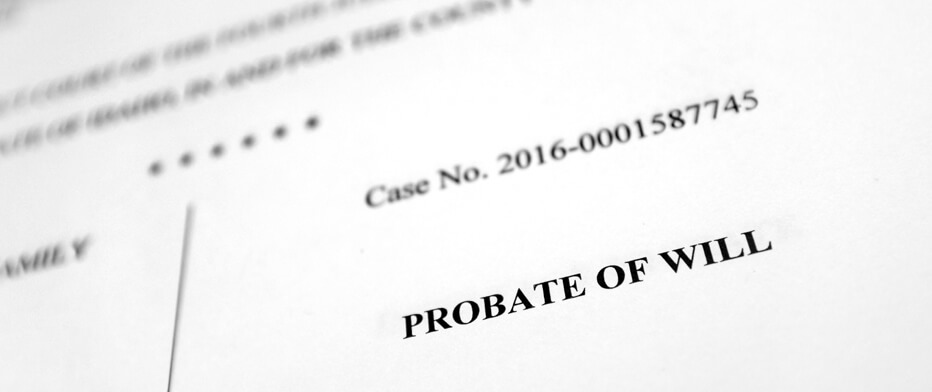What Happens to Debt When You Die?


Key Takeaways
- Most people die with debt.
- In most cases, the estate of the deceased is responsible for payingany remaining bills.
- Creditors often pressure heirs to repay debts even if there is no legal obligation to do so.
- Life insurance, paid on death, and retirement accounts with designated beneficiaries can bypass the estate and give heirs a financial inheritance even if the deceased has outstanding debts.
Dealing with debt collection calls after the death of a loved one is the last thing you want. Yet, 73% of consumers have bills remaining when they pass away, with an average debt balance of $61,554.
Existing debts could include a mortgage, car payment, credit cards, student loans, medical debts, or unpaid utilities. Your legal obligation to repay the bills of a deceased loved one depend on several factors, which can include:
- Your relationship to the deceased: A spouse may have legal obligations to repay some debts that children do not.
- Other names on the loan: Joint accounts, co-signed loans, and other guarantees could result in a third party becoming liable for an outstanding debt.
- Any secured property you want to keep: If you wish to retain property with an outstanding loan attached, it is necessary to pay it off or refinance the loan.
What Happens When a Loved One Dies?
After the death of a loved one, the executor must sort through the person’s finances, pay all outstanding debts based on state laws, and then distribute any remaining assets to heirs. Account titles playa significant role in who receives assets and what becomes property of the estate. Naming a beneficiary on life insurance policies, retirement accounts, and even bank accounts will bypass the estate and give money directly to heirs. Creditors do not have a legal right to those funds even if outstanding debts exist when this occurs.
Any assets without a designated beneficiary will become part of the estate. The executor will use those funds to repay creditors before any distribution to heirs.
Types of Debt and Its Treatment After Death
Secured debt or loans with collateral: Creditors get paid based on the value of the property securing the debt. Any remaining obligation becomes part of the unsecured debts when the collateral sells for less than the balance due. When the property sells for more than is owed, the remaining funds go to the estate to pay additional creditors or paid out to heirs.
Co-signed or joint accounts: The surviving owner of joint or co-signed debt becomes responsible for payments.
Student loans: Upon death, federal student loans are discharged. PLUS loans can qualify for a discharge after the death of either the parent or the student. Private student loans follow the policies of the lender.
When Can Spouses Inherit Debt?
In some cases, a spouse becomes responsible for some remaining debt obligations.
Community property states share both assets and liabilities. The surviving spouse would inherit all the property and all the debt obligations, even if they did not sign for the loan. Debts that predate the marriage are the exception.
Collateralized loans: If the spouse wants to keep the property secured by an outstanding loan, they must pay off the loan or make payment arrangements with the lender.
Joint accounts: Any accounts listed in both spouses’ names becomes the responsibility of the surviving spouse.
Medical debts in states with a filial responsibility statute. These laws can hold the spouse, and in some cases adult children, responsible for the medical bills of the loved one. If the parent was on Medicaid, the state could attempt to collect repayment for services received from 55 until death from the estate. If funds are not available in the estate, the state cannot pursue payment from the spouse or other close relatives.
Dealing With Bill Collectors
Even when you are not legally responsible for a debt, bill collectors can pressure you to pay the bills of a loved one. Some try to convince you that you are accountable, where others use the moral obligation argument to guilt you into paying an account you do not owe.
If you have questions about what you are and are not responsible for, contact an attorney in your state for clarification.
FAQ

REPRESENTATIVE EXAMPLE OF APR
If you borrow $30,000 over a term of 5 years (60 months) with an APR of 4.99% you will pay $566.00 each month. The total amount payable will be $33,959.97, with total interest of $3,959.97.
ANNUAL PERCENTAGE RATE (APR)
Annual Percentage Rate (APR) represents the annualized interest rate you are charged for borrowing. It is the combination of the nominal interest rate and some additional costs such as fees involved when incurring debt. Our lender offers APRs for personal loans, cash advance loans, installment loans and debt consolidation loans from 4.99% to 35.99%. Since New Start Capital does not directly issue loans, we cannot deliver any specifics or guarantee the APR you will be offered. The APR depends solely on your lender’s decision, based on various factors including your credit score, credit history, income, and some other information you supply in your request. For more information regarding the APR contact your lender.